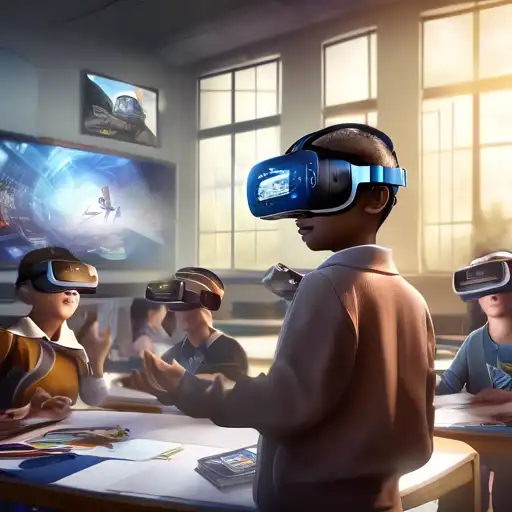Revolutionizing Learning: The Impact of Virtual Reality in Education
Virtual Reality (VR) is transforming the educational landscape, offering immersive learning experiences that were once unimaginable. This technology is not just a tool for entertainment but a powerful educational resource that can enhance understanding, retention, and engagement among students of all ages.
The Benefits of VR in Education
VR in education offers numerous benefits, including:
- Enhanced Engagement: VR captivates students' attention like no other medium, making learning more engaging and enjoyable.
- Improved Retention: Immersive experiences help students retain information longer by experiencing rather than just reading or listening.
- Accessible Learning: VR can bring distant or inaccessible locations right into the classroom, from ancient ruins to outer space.
- Safe Environment: Students can perform experiments or practice skills in a risk-free virtual environment.
Implementing VR in Classrooms
Integrating VR into education requires careful planning and consideration. Schools and educators must:
- Choose the right VR content that aligns with their curriculum.
- Ensure that the technology is accessible to all students, regardless of their physical abilities.
- Train teachers to effectively use VR as a teaching tool.
For more insights on integrating technology in education, explore our technology in education section.
Challenges and Considerations
Despite its potential, VR in education faces several challenges:
- Cost: High-quality VR equipment can be expensive, making it difficult for some institutions to adopt.
- Technical Issues: VR technology requires robust hardware and software, which can be prone to technical difficulties.
- Health Concerns: Prolonged use of VR headsets can cause discomfort or motion sickness for some users.
The Future of VR in Education
The future of VR in education is bright, with advancements in technology making it more accessible and effective. As VR becomes more mainstream, we can expect to see:
- More affordable VR solutions tailored for educational purposes.
- Greater collaboration between educators and VR developers to create customized learning experiences.
- Increased research on the effectiveness of VR in improving learning outcomes.
Virtual Reality is ushering in a new era of education, where learning is not just about memorization but about experiencing and interacting with knowledge in a whole new way. As we continue to explore the possibilities of VR in education, it's clear that this technology has the potential to revolutionize how we teach and learn.
For further reading on innovative educational technologies, check out our innovative education resources.
